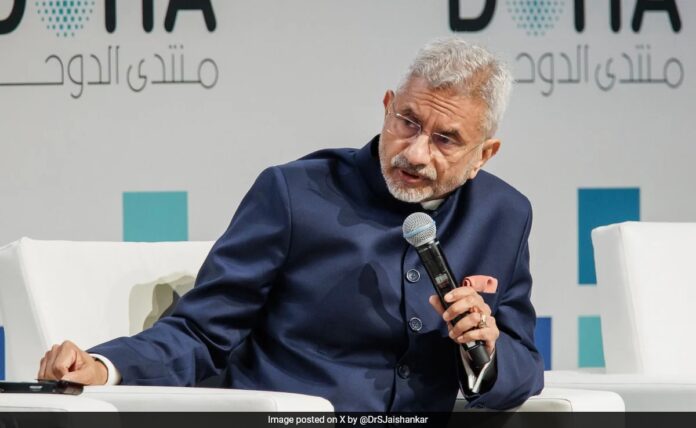External Affairs Minister S Jaishankar. (File)
New Delhi:
External Affairs Minister S Jaishankar highlighted concepts for understanding Indian Foreign Policy to create a multigenerational foreign policy.
He was speaking at India’s World magazine launch event in the national capital on Sunday.
In his speech, Jaishankar highlighted the importance of developing nuanced foreign policy thinking and debates.
“Just like the economic debates and the economic model of this country became more open, I think foreign policy debates, foreign policy thinking of this country also has to keep pace with what is happening in the country and needs to be more open”, the EAM said at book launch event.
He discussed the four elements of Indian Foreign Policy mentioned by C Rajamohan- the importance of working with the West, the need for strategic autonomy, the requirement to expand multipolarity, and the importance of the non-Western world, including the global South. EAM said that along with these there are certain sets of concepts that need to give practicality on the ground.
Thus, presenting a conceptual sense of Indian foreign policy today, Jaishankar gave a list of set of ideas to keep in mind.
“I would first invite you to look at the world in concentric circles, so you have a neighbourhood first (policy), SAGAR (Security and Growth for All in the Region) in the oceans, the Act East and Indo-Pacific to the east, the Gulf and the whole link west and the IMEC to the west, leading all the way up to Eurasia and to Europe”, he said.
Explaining the second concept, he said that we need to have a multi-vector foreign policy where we look at our identity of interests with other middle and upper-middle powers. “We need to create sets of balances whose aggregate actually favours India’s rights”, Jaishankar added.
He noted that a third concept is to have a grand strategy, “which looks over the horizon because if you are to be a leading power one day, if you are to have a strategy that is truly grand, then one has to not plan for today or tomorrow, but for the next generation, maybe even beyond”.
He listed out Indian initiatives in this regard from the past decade. These include the focus on Latin America, reaching out to CARICOM (Caribbean Community and Common Market ), the interest in the Pacific Islands, and the involvement with new connectivity initiatives.
“I would suggest to you that this is an India that is actually planning at least a generation ahead, trying to expand its footprint”, EAM said.
Jaishankar said, “If we visualise the world in a much more focused way, in a much more actionable way, if we learn to play the world stage more adeptly, which is not without its risks and its anxieties, and if you actually look over the horizon, I think you have the makings here of what would be in a sense a multigenerational foreign policy”.
(Except for the headline, this story has not been edited by The Hindkesharistaff and is published from a syndicated feed.)




